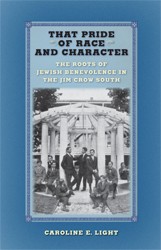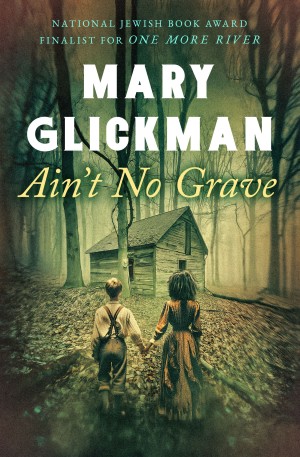Carolina Israelite is being promoted as the definitive account of the life of Harry Golden, a humorist, essayist, lecturer, and frequent guest on late night television shows in the 1950s and ‘60s. He was a popular cultural icon at a time when Jews entered the mainstream of American society. His life reflects the positives and negatives of assimilation. Kimberly Marlowe Hartnett, a journalist, charts Golden’s journey from a poor immigrant boyhood on the Lower East Side to his move South, where he was reborn as a celebrity. He became the editor of a controversial newspaper, The Carolina Israelite, the author of bestsellers including Only in America, and a contributor to national magazines.
Hartnett’s examination of this figure is as much a social history of the Civil Rights Movement in the South as a biography. Golden ‘s arrival in Charlotte, NC coincided with the beginning of the movement in the South, in which he became an activist. Hartnett’s impressive research on both themes includes works by Taylor Branch, W.J.Cash, Eli Evans, and Jonathan D. Sarna among many others. This is a study of the public figure rather than the private man, but early chapters describe family relationships and a mixed heritage of Talmudic learning and labor radicalism, and readers may glean other personal data from snippets scattered throughout. Hartnett presents Golden as a charming, talented rogue — however, she lists his unattractive traits and actions: he was an absentee husband and father, a womanizer, a heavy drinker, a debtor to family and business friends, a teller of false tales, and a schemer, always looking for the big score. A dubious Wall Street venture led to a jail term, a secret he carried with him to the South.
Golden’s commitment to Judaism, too, depended on circumstances and his needs. He found his identity as an ethnic Jew. Golden married a Roman Catholic, and their children were raised as Christians. Although he fought against antisemitism and supported the State of Israel, Golden had little patience with Southern Jews, whom he regarded as inheritors of the prophetic tradition. He was angered by their silence during the desegregation crisis. (Undoubtedly, they feared that Golden’s words might jeopardize their safety and status.) Golden did praise the Catholic Church, the Evangelicals, and the Black Churches for the spiritual strength which they brought to the movement.
Carolina Israelite is a hefty volume , and the narrative does not always flow smoothly. Many digressions — some lengthy — relate to the Movement; others do not relate specifically to Golden’s life. It is not clear that political and literary personalities mentioned as friends of the subject are anything more than passing acquaintances. Golden died in 1981, a forgotten man. America had lost its taste for his nostalgic, sentimental style and content. He and other gradualists were co-opted by African American nationalism, which brought about groups like the Students Non-Violent Committee and the Black Panthers, which were sometimes tinged with antisemitism. Golden’s support of Lyndon Johnson and the Vietnam War put him at odds with the younger generation. This title is appropriate for patient readers, looking for detailed information. Unlike Golden’s body of work, it is not designed to entertain. Index.



